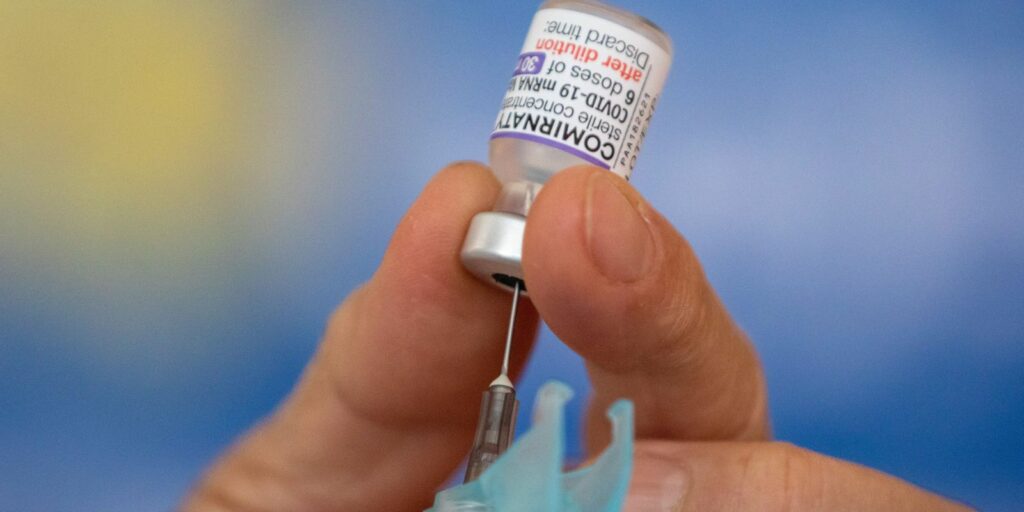
Clinical studies are gaining ground in Colombia and are forecasting a growth rate of 20 percent per year, according to Florencia Davel, general manager for the region of the pharmaceutical company Bristol Myers Squibb (BMS).
BMS is a pharmaceutical company that was born in the United States and has been operating in Colombia for 75 years and since 2007 has focused on clinical research on serious diseases. Davel, spoke with Portfolio about health issues.
(Rowa, the robot that drives the ‘Digital Pharmacy’).
After the merger of Bristol with Celgene, what percentage of growth has it produced for you?
Sustained double-digit growth was seen in the oncohematology franchise. In addition, in the last year we reached 15,000 patients in Latin America, 20% of those are in Colombia.
What does the Colombian pharmaceutical industry look like?
For Bristol, Colombia has been a fundamental market. BMS was the first company to bring Penicillin to the country, we had the first Penicillin plant in Cali and from there it was a continuous bet. We started with antibiotics and now it is more focused on oncology and immunotherapy.
In addition, Colombia is a benchmark market in access to the health system. The increase in health spending also stands out, because it is a benchmark in Latin America, which is above the standards.
(Warren Buffet’s Berkshire Hathaway Fund will be traded in Colombia).
Now that you mention the health system, how does the pharmaceutical company see the reform project?
We support everything that is for the benefit of the patient: we support a public-private partnership for the benefit of the patient, as long as access to adequate health is maintained. We hope that any decision that is made is in the best interest of the patient and that it can guarantee sustainability and is equitable.
What results have you had from investing in Colombia?
We are pleased to have the first phase 1 study in hematology approved in Colombia, that is, it is the first study to be carried out in humans to determine efficacy, the appropriate dose for the patient, among others. That is a big bet that generates more investment.
To which is added that in the last three months of the year we had the same number of clinical studies as last year. That is, 17 new protocols, which is the same approximate number of all of 2022.
(The best places to work in Colombia for women).
How has this public-private articulation between governments and pharmaceutical companies been given to bring the studies to the country?
When it is decided to bring a study, it is because an unmet medical need is observed and it is observed that the country has the platform, which is the medical centers, the personnel and an infrastructure, so that the medical studies can be developed. To which is added that the regulatory entities approve it, in this case Invima, as well as that intellectual property is ensured. In Colombia, for example, this is respected and allows almost 50% of the investment in clinical studies to be attracted.
What do you think of generics?
A generic was always an innovator before, which is why it is so important that countries respect intellectual property. Innovation must be respected as long as the patent is in effect and as long as the company continues to develop and market the product. We are all for safe and effective bioequivalent products, while respecting patent law.
(Why Midsize Banks Are Suffering More Today).
What investment is coming in Latin America in terms of innovation and research projects?
We have projected an investment in the next five years of US$200 million and Colombia is a key pillar in this growth, much more in terms of clinical studies. We have seen that in the last two years in Colombia clinical studies have doubled and we anticipate a growth of 20% year-on-year. As well as in the launch of new products.
How do you see the shortage of medicines in Colombia?
In our case, for example, we do not have a supply problem with medicines in the Colombian market.
(Fedesarrollo makes a proposal to improve the health system, without reform).
Experts mention that pharmaceutical companies do not want to produce more antibiotics, despite the resistance to those that exist, why do you think this statement is made?
We invested in the development of antibiotic therapy for many years until the products lost their patent in the market and were developed as generics. In this sense, I believe that there is no disinterest due to lack of profitability, in fact, there are many examples in which drugs do not provide the expected profitability, but the benefit of the population is sought and that is a priority over any profitable benefit.
What impact has inflation had on investment?
The investment is in dollars and, despite the challenges that inflation brings to the administration of resources, that investment has been maintained, that is, it has been sustained.
In addition, our focus is the patient, which is why we work jointly with governments and societies to ensure that we can work to provide treatment in an equitable and sustainable manner, which is the great objective.
In terms of utility, we base ourselves on the value of the innovation that we bring to the market, that is, clinical research, investment in development.
What we try to do so that inflation does not affect the chain is to work collaboratively and make efficient use of our resources. In that, we try to reallocate the investment in the new launches that come in the next few years. The latter, focused on medical education, patient support programs, etc.
CLAUDIA M. QUINTERO RUEDA
Journalist Portfolio

















